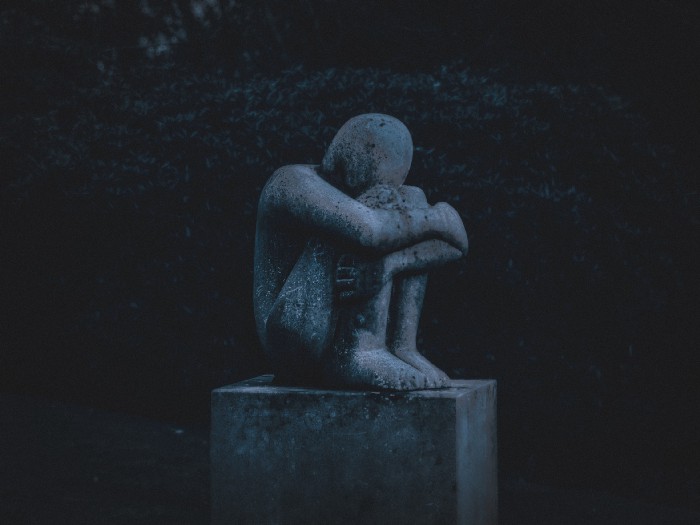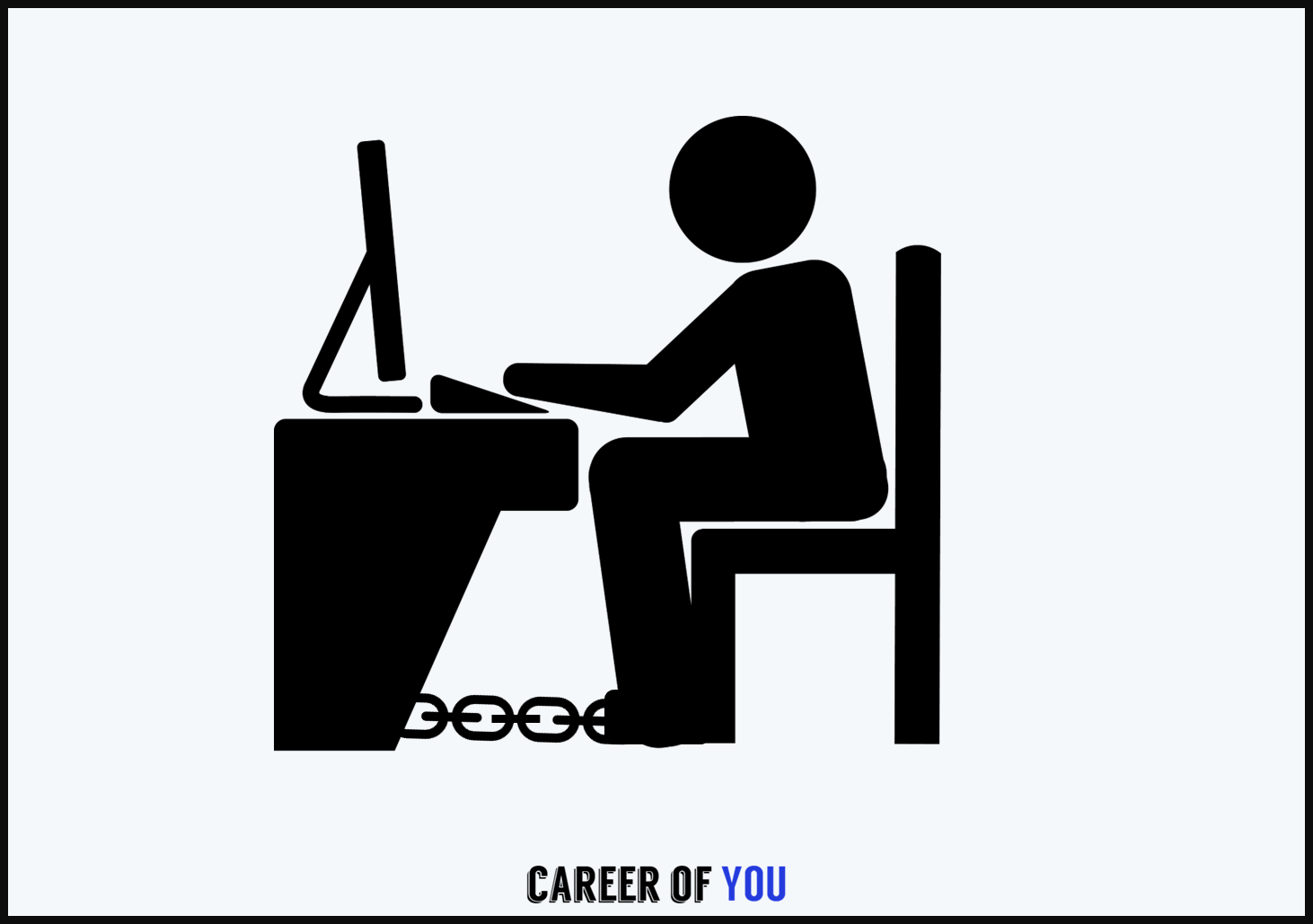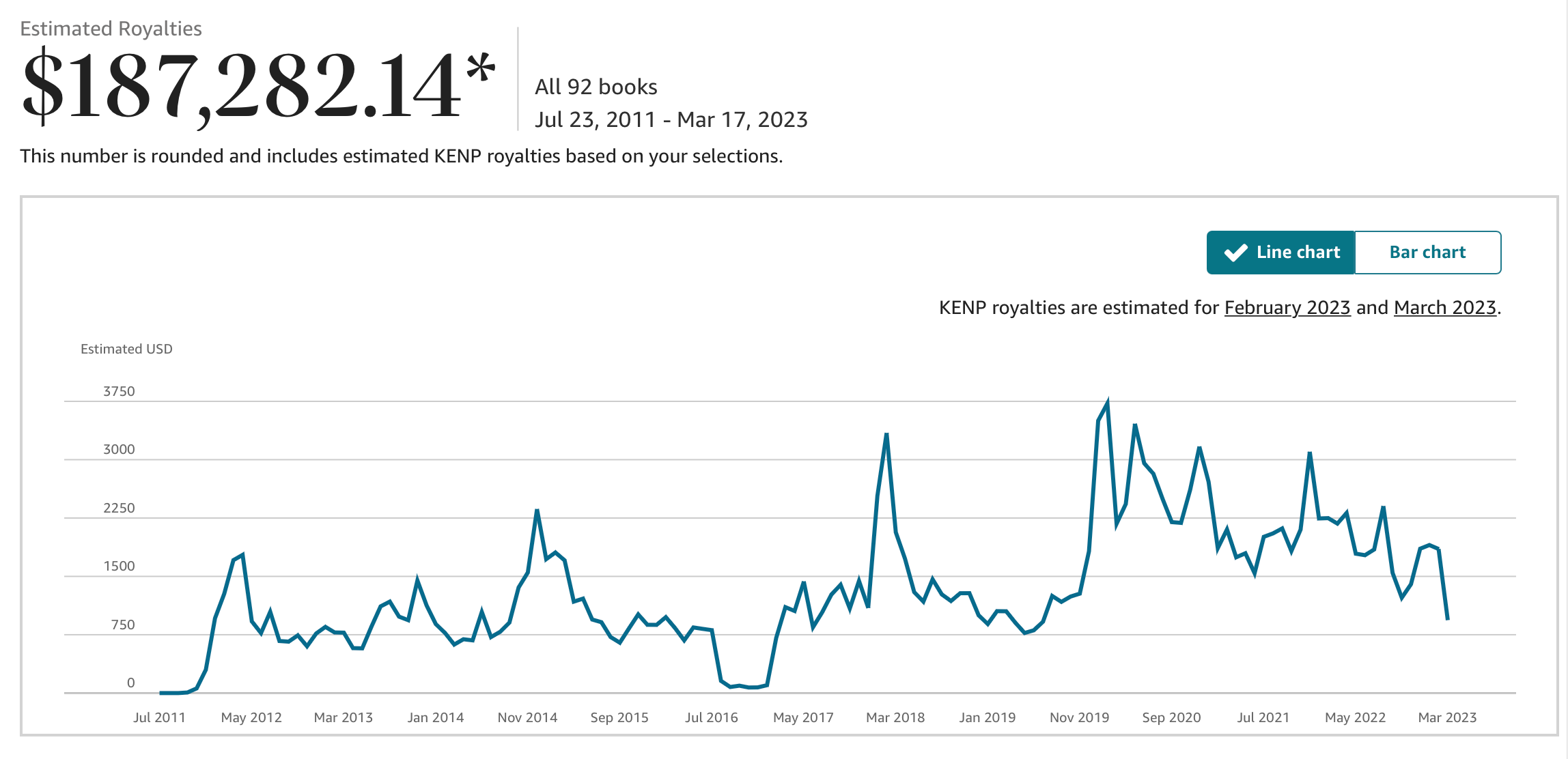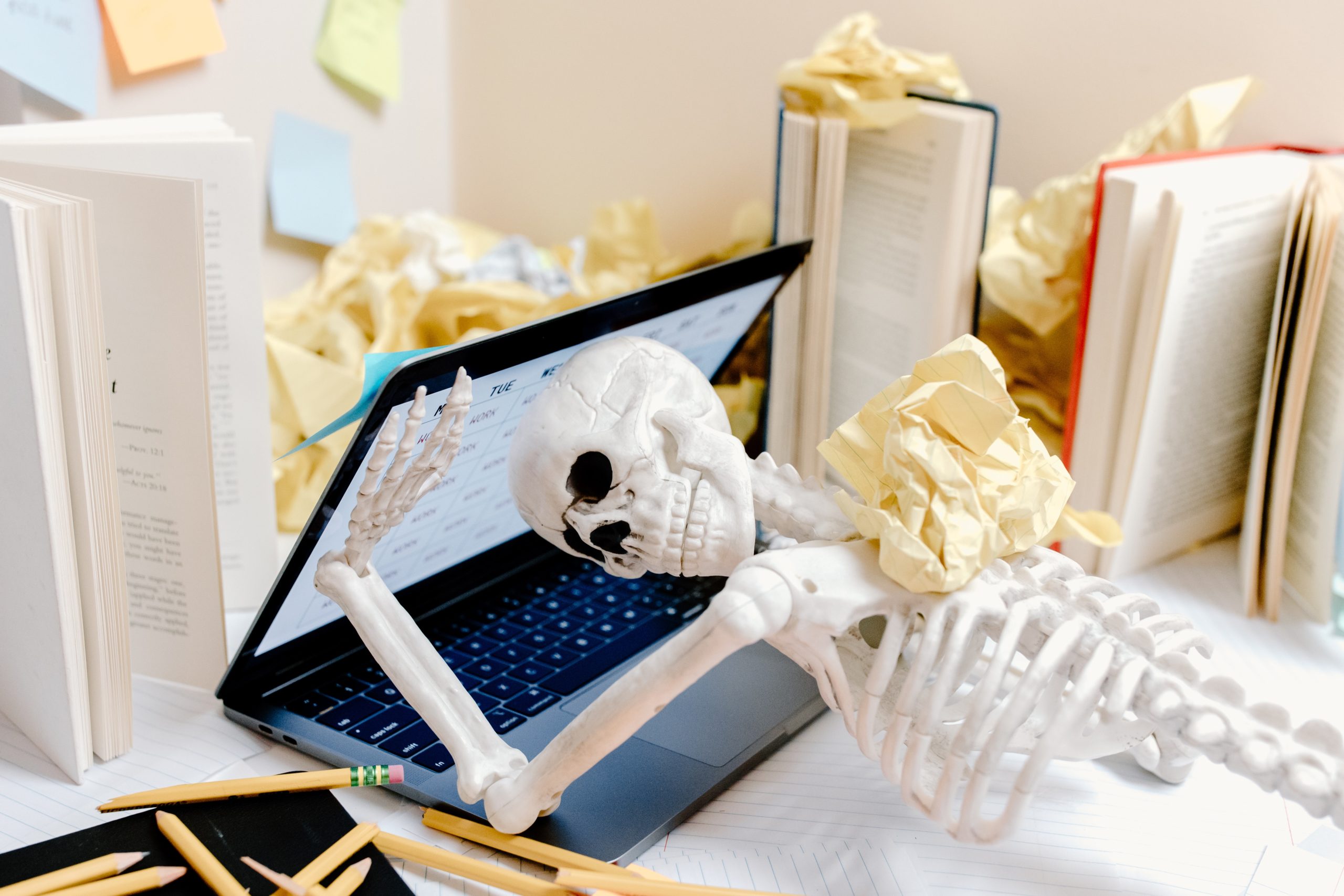It’s easy to forget in a professional environment that everyone is human.
A few months ago, my father suddenly died. It was such a surreal moment; I’d spoken to him the night before, then the next day I received a call from my mother saying he’d had a stroke and was gone.
Losing parents is so terribly ordinary — at some point, we all go through it.
The last few months have been some of the strangest of my life. I’ve had very little energy and really struggled to want to do much of anything.
A few months before my father’s death, I took a big step-up in my career — a new job where I manage a large team of people, working in a hyper-competitive environment, and in a role that requires me to learn a lot of technical subject matter at the same time.
Unfortunately, while I feel like my world has stopped, the rest of the world doesn’t seem to agree. Life doesn’t offer us grief leave. You still have to go to work, still have to show up for loved ones, and keep on living.
I know if my father was here, he wouldn’t want me to waste the opportunity this new job offers. So I’ve had to find ways to cope and continue to bring my whole self to work, even on days when I don’t feel like getting out of bed.
I’m not a psychologist so I can’t promise these techniques will work for everyone, but they have helped me. If you’re in a similar situation, my hope is they might help you too.
Explain to Your Colleagues What’s Going On and Why You Might Be Acting a Little Differently
When I first returned to work, I clearly wasn’t myself. I snapped at people on more than one occasion. While I felt like I was fine to return, I clearly wasn’t in control of my emotions.
Rather than maintain a professional, stoic face, I chose to tell my team and my colleagues what had happened. It’s easy to forget in a professional environment but everyone is human. People will understand and treat you with compassion.
The wonderful side-benefit of this was that several people approached me who had also lost their parents early in life. Through them, I’ve learned some of the tactics in this article which have helped me to cope, and I now have people to talk to who can understand what I’m going through.
Don’t Avoid Your Feelings — Instead, Dedicate Consistent Time to Grieving
Initially, I tried to shut out my feelings of grief. I worked all hours, and couldn’t bring myself to look at photos of my father. But as the weeks and months have passed, I’ve had to accept a hard truth. Ignoring these feelings only makes things worse. I was becoming irrationally angry and short-tempered, which I’m sure was my grief manifesting itself.
What I’ve now realized is that the pain of grief won’t go away any faster if I ignore it. To eventually find a way to come to terms with loss, you need to actively face the pain so you can process it.
To do this, I now set aside an evening every couple of weeks simply to remember my father. Typically, I do this by watching old family videos I’ve had digitized so they are on my laptop.
These ‘grief evenings’ are brutal, but I’ve come to understand that the only way through the pain is through the pain. Allowing myself to be totally immersed in my grief does seem to help me process my feelings, and get back to myself quicker.
These sessions have also helped me to feel happy when I see an image of my dad, rather than triggered, which is helping me keep connected to him.
Set Up a Balanced Routine and Stick to It
Immediately after my father’s death, my regular routine went out the window. I stopped regularly exercising, withdrew from seeing friends, and tried to deal with my grief by working to excess.
In hindsight, this was the least helpful thing I could’ve done. And I didn’t start to feel better until I started to rebalance my life back toward a more typical weekly routine. I think this has helped, as it has given me a greater sense of control and normalcy when dealing with what feels like a now much more uncertain world.
To bring my routine back, I’ve found making my weekly schedule visible helpful, as it enforces my commitment to sticking to it. Every Sunday, I plan out my week on paper.
This starts at the most basic level — when am I going to wake up, eat meals, and so on. I have a boss who is very demanding so I also consider which evenings I’m willing to work late and which I am not. I also try to make my schedule as balanced as possible, building in time for social activities with family and friends, exercise, hobbies, and downtime.
Lastly, I try very hard not to overschedule myself. I know I’m not myself right now and that I need downtime. So, I don’t want to set myself up for failure by setting unrealistic goals too soon.
On Tough Mornings Music Helps
This is a simple tactic, but one I’ve found very helpful. There are some mornings when I just cannot get going, particularly when I have to go to the office in person. I sometimes feel a sense of dread come over me as I step off the train. To overcome this, I’ve found having a playlist helpful for getting myself into a better headspace.
Grooving through grief playlist — curated by author
In particular, I have found the song Cloudy Day by the Tones and I to be a great help (though I appreciate it may not be to everyone’s taste).
Plan Some Days Off
As much as facing your grief head-on is necessary to help you process it, it’s also physically and emotionally exhausting. And work in itself can often be exhausting enough. When I first told people about my father’s sudden death, a friend of mine confided that he lost his father when he was just 25.
He gave me a really helpful piece of advice that I’ll always be grateful for:
“finding time to grieve is helpful and necessary but it’s also exhausting, and you’ll be grieving forever so you need to pace yourself. To get back to yourself you need to oscillate between facing your grief and giving yourself days off from it. You don’t have to feel guilty about still having fun”.
This advice has been invaluable to me. I know my work is relentless, so when I returned to work I immediately booked several days off — simply to give myself respite every couple of weeks. I haven’t crammed these days full of activities but simply used them to relax — have a lie-in, go for a walk, cook a nice meal, etc.
Knowing that I have these days in the diary where I don’t have to answer to anyone or do anything unless I choose to has made returning to work much more manageable.
Find a Sustainable Passion Project That’s Just for You
I’ve always found personal expression and happiness in my hobbies — including writing, reading, and various sports. When my dad died, I noticed I lost interest, and simply couldn’t be bothered to do anything other than the bare minimum.
For a while, I tried waiting for my enthusiasm for my hobbies to return on its own, but honestly, it still hasn’t today. Instead, I’m now actively taking the decision every day to do something for myself, before I do anything for anyone else.
For many years I’ve had an idea for a novel in my head but have never done anything about it. Now, every morning before work, I aim to spend 15 minutes writing. I don’t always achieve this, sometimes I can’t get out of bed, then have no time for myself before work. But on the days when I do achieve this, I get an immediate lift in my mood — like I’ve done something for myself and put myself first. I then go to work with a more positive attitude.
If you’re also grieving, I’d encourage you to think about your list of things you’d always wanted to do, but put off as the time isn’t right. Find something you can sustainably chip away at every day and get started now. Life is short and you should live for yourself as much as you live for others.
Take On a Physical Challenge
There is a lot of advice out there on the benefits of physical exercise, so I’ll do my best not to repeat that. What I will say is that I’ve found exercise to be an extremely helpful tool in helping me regulate my mood, and bring back a feeling of control. I’d recommend that everyone who is grieving tries to get a small amount of exercise each week, even just a walk to release some endorphins.
I have also found running to be an absolute godsend. About a month after my father passed, a friend of mine signed me up for my first ever trail run. Having something to train for gave me a tangible goal to focus on while grieving, and forced me to get out in nature on a regular basis.
The run itself was also a massive help, as it’s shown me that I can still do hard things and take on difficult challenges. A useful lesson during a time when I’ve lost confidence in myself.
Moving On Doesn’t Mean Forgetting
The last thing I’d like to say is moving on doesn’t mean forgetting your loved one. I initially tried not to think of my father and would avoid looking at pictures of him. Now I’m trying to remember him in small ways. He loved to play chess with me when I was growing up, so I’m regularly playing online. I’ve got a framed photo of him up in my front room.
I think to process the loss of a loved one, you need to find a way forward in life where the pain you feel from grief isn’t removed, but rather will become a part of you and gradually easier to bear. By facing those feelings, you can ensure your memories of your loved one will always remain.
Parting Thoughts
Unfortunately, at least from my experience, I don’t think our workplace culture is set up to deal with grief. The default approach seems to be that your employer will make sympathetic noises, give you a couple of weeks off to grieve, then hope you’ll return expediently to work as your full self.
But grieving is a challenging period for anyone, even if our modern workplaces don’t make time for it. So be upfront about how you’re feeling, set clear expectations about what your colleagues can and cannot expect from you during this period, and set boundaries like never before.
Trust me, if you don’t, the healing process will only take longer.
And throughout this period, remind yourself that it’s okay to be human, it’s okay to need time, and it’s okay to grieve.





